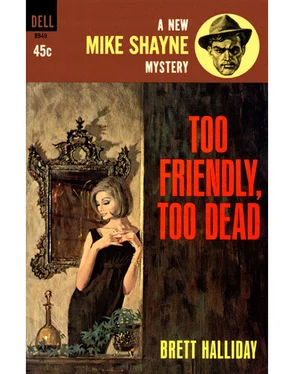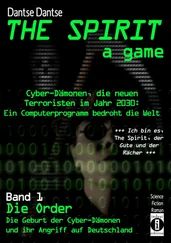Dan Fesperman - The Double Game
Здесь есть возможность читать онлайн «Dan Fesperman - The Double Game» весь текст электронной книги совершенно бесплатно (целиком полную версию без сокращений). В некоторых случаях можно слушать аудио, скачать через торрент в формате fb2 и присутствует краткое содержание. Жанр: Шпионский детектив, на английском языке. Описание произведения, (предисловие) а так же отзывы посетителей доступны на портале библиотеки ЛибКат.
- Название:The Double Game
- Автор:
- Жанр:
- Год:неизвестен
- ISBN:нет данных
- Рейтинг книги:3 / 5. Голосов: 1
-
Избранное:Добавить в избранное
- Отзывы:
-
Ваша оценка:
- 60
- 1
- 2
- 3
- 4
- 5
The Double Game: краткое содержание, описание и аннотация
Предлагаем к чтению аннотацию, описание, краткое содержание или предисловие (зависит от того, что написал сам автор книги «The Double Game»). Если вы не нашли необходимую информацию о книге — напишите в комментариях, мы постараемся отыскать её.
The Double Game — читать онлайн бесплатно полную книгу (весь текст) целиком
Ниже представлен текст книги, разбитый по страницам. Система сохранения места последней прочитанной страницы, позволяет с удобством читать онлайн бесплатно книгу «The Double Game», без необходимости каждый раз заново искать на чём Вы остановились. Поставьте закладку, и сможете в любой момент перейти на страницу, на которой закончили чтение.
Интервал:
Закладка:
Curiosity overcame caution, if only because of all the times as a boy when I’d imagined setting out on just this sort of spy’s errand-flashlight in hand, an eye out for surveillance, the moon peeping over my shoulder. In those days I was usually on my way to meet a girl, run an errand for Dad, or share a toke by the Danube.
But this was the real thing, or some prankster’s version of it, and as I stepped onto O Street a swell of giddiness caught in my throat like laughter. For the moment, any chance of danger seemed worth the price of admission.
I took precautions nonetheless. To give the streets time to empty and darken, I waited a few hours before leaving the house. I also scrounged up an old canister of pepper spray. To pass the time before zero hour I took down some old books to reacquaint myself with my favorite spies. Their debuts were of particular interest since I was preparing for my own, and I discovered eerie similarities.
In Le Carre’s Call for the Dead, George Smiley is summoned from sleep by a ringing telephone. In The Miernik Dossier, Charles McCarry’s Paul Christopher is yanked from bed in Geneva by the doorbell. In Berlin Game, Len Deighton’s Bernard Samson waits in the midnight cold of Checkpoint Charlie for a contact who never shows. And in Knee Knockers, Lemaster’s Richard Folly is lured into the murk of predawn Prague. Such a lonely procession of nocturnal seekers. Literally and figuratively they were all in the dark. Now, so was I, an unlikely initiate to the midnight brethren.
As mandated by page 47 of The Double Game, my tradecraft involved a series of switchbacks to ensure no one was following. It felt childish, especially when I spotted a neighbor walking her dog-an Alsatian, meaning it must be Mrs. Pierce from over on Dumbarton. I called out in greeting, but the woman who turned was slimmer, younger. Possibly taking me for a mugger, she quickened her stride, and to avoid alarming her further I doubled back toward P Street. Fortunately there was only a block to go, and I tempered my sheepishness with the knowledge that, while Georgetown was hardly Berlin, these chockablock townhouses had harbored many a spook and spymaster at the height of the Cold War.
CIA chief Allen Dulles had lived right around the corner. So had Frank Wisner, the doomed zealot whose mania for covert action sent hundreds of operatives to their deaths. In the fifties and sixties, dozens of Agency men had lived here, gossiping and drinking with pundits and policy makers at rollicking dinner parties that included plenty of charming guests from abroad-British mole Kim Philby, for one.
Dad and I lived here then, during a two-year home posting from ’62 to ’64, back when the can-do luster of American spying peaked and began its long, steady decline in the wake of the Kennedy assassination.
I remember Dad pointing out Dulles at a cocktail gathering and admonishing me, “Be nice if he speaks to you. He just lost his job because of the Bay of Pigs”-which sounded to me like some kind of farming disaster.
At the age of seven I spotted Mr. Wisner at a neighbor’s garden party one Sunday afternoon. At the time I had a crush on his daughter, who was several years older, so I was paying close attention to all things Wisner. Even a kid could tell that her dad seemed pale and beleaguered, a man at the end of his rope, although I had no way of knowing that years earlier he’d suffered a nervous breakdown in the wake of the Soviet invasion of Hungary.
A year later, after we moved back overseas to, of all places, Budapest, my father heard that Mr. Wisner had blown out his brains with a shotgun. I recall feeling bad for his daughter, and wondering if I could improve my standing with a sympathy card.
But my most vivid Georgetown memory was of an autumn afternoon just before my eighth birthday, when murder was the talk of the town. A woman was shot to death on the towpath of the C amp;O Canal, a pleasant greenway where everybody walked their dogs. The Post identified her as Mary Pinchot Meyer, sister-in-law of Benjamin Bradlee, who identified the body. All I knew of Mr. Bradlee was that he was the dad of a schoolmate a grade behind me, although the story said he was the Washington bureau chief for Newsweek, which sounded important. It felt strange seeing our neighbors’ names in a crime story, and I read over Dad’s shoulder as he drank his morning coffee.
“Shouldn’t you be getting ready for school, sport?”
“I’m done.”
“Teeth brushed?”
I bared them fiercely, and he turned back to his reading. A few seconds later he chuckled under his breath.
“What’s so funny?”
“Oh, it describes this poor woman’s ex-husband, Cord Meyer, as a ‘local author and lecturer.’ You remember Mr. Meyer, don’t you?”
I did, mostly because he was the only person I’d ever met named “Cord.” Still is.
“I thought he worked with Mr. Wisner?”
“He does. The paper is being discreet.”
“What’s ‘discreet’ mean?”
“You could look it up. Increase your word power, like in Reader’s Digest. ”
Dad hated Reader’s Digest, so I took it for a joke, although I didn’t get it.
“Don’t you be wandering over to the towpath. That’s police business, not yours. And if you cross Wisconsin Avenue on your bike, for God’s sake, walk it across.”
“Yes, sir.”
Naturally I made a beeline for the towpath after school on my red Galaxy Flyer. To my disappointment, there was no sign of the crime, so I set out for the next best destination-the victim’s art studio in the Bradlees’ garage, on an alley behind N Street. The Post had evocatively described a freshly painted canvas, still wet from her final brushstrokes, drying on an easel in front of an electric fan.
I negotiated a dogleg turn up the alley, and to my morbid delight the garage was wide open, revealing a roomful of canvases, including the one in front of the fan. What I hadn’t bargained for were the two men who turned abruptly at the sound of my approach.
One was Mr. Bradlee, who relaxed the moment he recognized me. But the other man, taller and thinner, stared with probing eyes from behind thick, horn-rimmed glasses. He acted more like a cop than a neighbor, and when he took a step in my direction I nearly fell off my bike. Fortunately Mr. Bradlee put out a hand to stop him.
“It’s all right, Jim. It’s Warfield Cage’s boy.” Then, to me: “It’s Bill, right?”
“Yes, sir. I’m sorry if-”
The man named Jim interrupted.
“This isn’t your business, son. That’s what your father would tell you.”
It probably wasn’t his, either, but I’d been taught not to talk back to adults.
“Yes, sir.”
Then he said the strangest thing, reminding me of one of those folk tales where the troll offers a riddle for safe passage:
“Remember, son. Caution is the eldest child of wisdom. Now run along.”
“Yes, sir.”
I was shaky in the saddle until I reached the wide open spaces of Thirty-third Street. When I described the encounter to Dad, he chuckled just like he had while reading the Post.
“Sounds like Mr. Angleton,” he said. “Quoting Victor Hugo, no less.”
“Who’s he?”
“Victor Hugo?”
“Mr. Angleton.”
“Oh, sort of an ‘author and lecturer,’ like Mr. Meyer.”
“Why was he in that lady’s room?”
“Looking for secrets, I’d imagine. That’s mostly what he writes and lectures about.”
“What kind of secrets?”
“They wouldn’t be secrets if he went around telling everybody, would they?”
Not until my thirties did I find out from some book what they’d really been up to. By then I was working for Bradlee, who’d become executive editor of the Post, and I’d long since learned that Jim Angleton had been the CIA’s chief counterspy. They’d been looking for Mary Meyer’s diary, which described her affair with the late President Kennedy. Since she was something of a lefty, Angleton may also have wanted to scan it for clues to assist his infamous Great Mole Hunt, a paranoid quest in which he ruined the careers of so many trustworthy CIA men that he, too, was eventually forced out.
Читать дальшеИнтервал:
Закладка:
Похожие книги на «The Double Game»
Представляем Вашему вниманию похожие книги на «The Double Game» списком для выбора. Мы отобрали схожую по названию и смыслу литературу в надежде предоставить читателям больше вариантов отыскать новые, интересные, ещё непрочитанные произведения.
Обсуждение, отзывы о книге «The Double Game» и просто собственные мнения читателей. Оставьте ваши комментарии, напишите, что Вы думаете о произведении, его смысле или главных героях. Укажите что конкретно понравилось, а что нет, и почему Вы так считаете.












